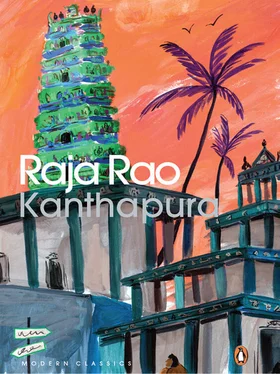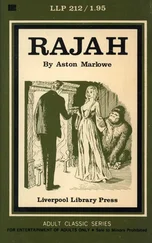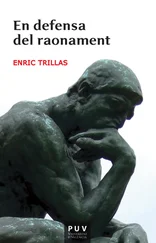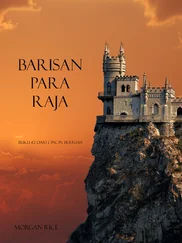But before he has stopped somebody says, ‘So you are a Swami’s man?’—and the old man says, ‘And of course I am, and I have the honour to be.’—’And the Swami has just received twelve hundred acres of wetland from the Government. Do you know that?’ says a youngster. — ’Of course, and pray what else should he do if he is offered a rajadakshina, a royal gift?’—and the youngster says, ‘So the Swami is a Government man?’—and the old man says, ‘The Swami is neither for the Government nor against it, but he is for all who respect the ancient ways of our race, and not for all this Gandhi and Gindhi who cannot pronounce even a gayathri, and who say there is neither caste nor creed and we are all equal to one another, while the Swami. ’—And somebody cries out, ‘Do you know the Swami has been received by the Governor?’— and Sankar rises up and says, ‘No interruptions, please!’—and the old man answers, ‘And of course, but why not? And do not the dharma sastras say the king is the protector of faith? And I cry out “Long live George the Fifth, Emperor!”’ and he hobbled down from the platform.
Then came youngster after youngster and said Moorthy was excommunicated by the Swami, for Moorthy was for Gandhiji and the Untouchables, and the Swami was paid by the British to do their dirty work. ‘I have grown in the Mutt,’ says one, ‘and I have known what they do. The Mutt, brothers, is the best place for retired high court judges, police inspectors, and God-dedicated concubines, and they are not with us, are they?’ And Sankar rises up again and says, ‘Now it is better we talk of other things,’ but the young man continues, ‘The whole trouble has been hatched by the Mutt.’ Then Advocate Ranganna gets up and says, ‘And I too have been excommunicated, for I have thrown open the temple to the Pariahs,’ and there is a violent ovation, and Ranganna continues, ‘And I know one thing too that few know, and it is time I said it in the open,’ and everybody began to stand up and the Volunteers cried, ‘Sit down, please, sit down!’ And when there is silence again, Ranganna continues: ‘Not long ago, I received a visit of a man, and he comes to me and says, “The Swami would like to see you,” and I say, “If the Swami likes to see me, I am indeed most honoured!” and straight I go the next morning with fruits and flowers, and the Swami receives me with smiles and blessings and he says, “I need your help, Ranganna,” and I say, “Of course, everything is yours, Swamiji,” and the Swami says, “There is much pollution going on and I want to fight against it,” and I say, “I am for fighting against all pollution,” and the Swami says, “For some time there has been too much of this Pariah business. We are Brahmins and not Pariahs. When the Pariahs will have worn out their karma, and will have risen in the waters of purification, nobody will prevent them from becoming Brahmins, even sages, in their next lives. But this Gandhi, who is no doubt a very fine person, is meddling with the dharma sastras, the writ laws of the ancient sages, and I am not for it. He said he would like to see me, and I saw him and told him what I thought of it. But he said we did not interpret the dharma sastras correctly, and of course it was ridiculous to say that, for who should know better, he or I? But one cannot break the legs of the ignorant. Now, what I have to say is simple: we want to fight against this anti-Untouchable campaign, and I may tell you in confidence, the powers that be, well, they are with the guardians of our trusted traditions.”
‘”Swami,” I said, “how can you accept the help of a foreign Government? Do not the dharma sastras themselves call the foreigners mlechas, Untouchables?” and the Swami said, “Governments are sent by the divine will and we may not question it,” and he added, “And I may say the Government has promised to help us morally and materially,” and at this I got so angry that I rose to go, but the Swami held me by the two hands and said, “Do take your seat!” but I said, “No, I cannot, I cannot,” and it was on that very day I took the vow to open our temple to the Pariahs, and that is why I opened it to them. ’ There was a long ovation—’And therefore, brothers, know for sure what religion is wearing behind its saffron robes. Choose between a saint like Mahatma Gandhi who has given up land and lust and honours and comfort and has dedicated his life to the country, and these fattened Brahmins who want to frighten us with their excommunications, once the Government has paid them well.’
At this the police inspector comes up and says, ‘I put you under arrest!’ and Advocate Ranganna answers, ‘Well, on what authority?’ and the police inspector shows him a magistrate’s order, and Ranganna offers himself up to the police, and there is a huge, hoarse cry, and ovation after ovation rises— ‘Gandhi Mahatma ki jai!’—’Vande Mataram!’— and processions immediately form themselves, and with Volunteers on either side they march through bazaar and street and lane, and women rush to the veranda, and children follow them still muttering the multiplication tables, and as dusk falls and lights flash from house to house, so shrill rises the cry of ‘Mahatma Gandhi ki jai!’ that by the Imperial Bank buildings police cars are already waiting, and the crowd is violently dispersed.
And when the morning came the papers were full of it, and Rangamma’s blue paper brought it all to us, and that is how we knew it all. And then we looked at each other and said, ‘So that is how it is with Bhatta,’ and everybody said, ‘And so it is!’ and Rangamma said, ‘That is why Badè Khan was so often seen with him,’ and Nanjamma said, ‘Do you remember, sister, he was nowhere to be seen on that awful night?’ and everybody said, ‘Yes, surely, and fools we were not to have seen it earlier,’ and we all felt the kernel of our hearts burn, for Bhatta had walked our streets with a copper pot in hand and we had fed him. Only Ramakrishnayya said, ‘There is still many a good heart in this world, else the sun would not rise as he does nor the Himavathy flow by the Kenchamma hill,’ and all looked at the stars and said, ‘Yea, the stars of the seven sages hang above us,’ and as a wall lizard clucked propitiously, we all beat our knuckles upon the floor and named the holy name, and there came with it such peace into our hearts that we walked back home with the light in our souls. And somewhere beyond the Bebbur mound, somewhere beyond the Bebbur mound and the Kenchamma hill, out against the sky that rises over Karwar, out over the river, there seemed to stand, as one might have said, the supple, firm figure of Moorthy, a Gandhi cap upon his head and a northern shirt flowing down his waist to the knees. And there was something in his eyes that shone and showed that he had grown even more sorrowful and calm.
And week after week passed, and Rangamma’s blue paper brought us this news and that news, and Pandit Venkateshia said, ‘Why should I not make it come?’ and he too began to receive it every Saturday evening, and Rangè Gowda came and said, ‘Rangamma, Rangamma, I do not know how to read, but my little mosquito goes to school and, if he is worth the milk he has drunk, he will read it out to us,’ and he too began to get the paper through Postman Subbayya, and evening after evening we gathered on Rangamma’s veranda, and when Ramakrishnayya had explained to us a chapter from the Vedanta sutras, kneading vermicelli or shaping wicks for the festivals, we began to speak about Moorthy, while our men sat at the village gate, rubbing the snuff or chewing the tobacco leaf, and it seems they said many wicked things about the Government.
Читать дальше












